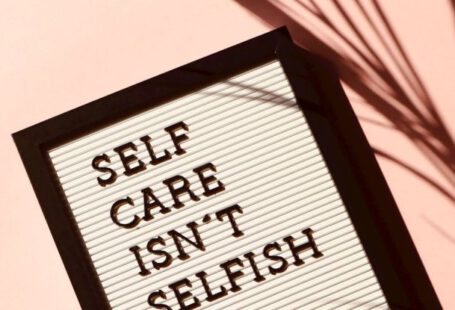In today’s fast-paced world, finding ways to relax and unwind is essential for maintaining overall well-being. One popular method that has gained significant attention in recent years is the use of essential oils. These concentrated plant extracts offer a natural way to promote relaxation and reduce stress. But what is it about essential oils that make them so effective for relaxation? Let’s delve into the science behind these potent oils and explore why they have become a go-to solution for many seeking a moment of tranquility in their hectic lives.
**The Power of Aromatherapy**
Aromatherapy, the practice of using essential oils to improve physical and psychological well-being, has been around for centuries. The sense of smell is closely linked to the brain’s limbic system, which plays a key role in emotions, behaviors, and memories. When essential oils are inhaled, their aromatic compounds stimulate the limbic system, triggering various responses that can promote relaxation and reduce stress levels.
**Calming Effects of Specific Essential Oils**
Not all essential oils are created equal when it comes to relaxation. Some oils have specific properties that make them particularly effective in promoting a sense of calm and tranquility. Lavender, for example, is well-known for its soothing properties and is often used to promote relaxation and improve sleep quality. Studies have shown that inhaling lavender essential oil can reduce anxiety levels and improve mood.
Another popular essential oil for relaxation is chamomile, which has been used for centuries as a natural remedy for stress and insomnia. The gentle, floral scent of chamomile can help calm the mind and body, making it an excellent choice for winding down after a long day.
**The Role of Inhalation and Absorption**
One of the reasons essential oils are so effective for relaxation is their ability to be inhaled and absorbed through the skin. When inhaled, the aromatic compounds in essential oils travel to the olfactory system and then to the brain, where they can have a direct impact on mood and emotions. Additionally, when essential oils are applied to the skin through massage or topical application, their bioactive compounds can be absorbed into the bloodstream, further enhancing their therapeutic effects.
**Personalized Aromatherapy Blends**
One of the benefits of using essential oils for relaxation is the ability to create personalized aromatherapy blends tailored to your specific needs and preferences. Whether you prefer a citrusy scent to uplift your mood or a woody aroma to ground and center yourself, there are countless essential oils to choose from, allowing you to customize your relaxation experience.
**Enhancing Relaxation Practices**
Essential oils can also be incorporated into existing relaxation practices to enhance their effectiveness. Adding a few drops of lavender essential oil to a warm bath, diffusing chamomile oil during a meditation session, or applying a calming blend to pulse points before bedtime are just a few ways to harness the power of essential oils for relaxation.
**Closing Thoughts**
In a world filled with constant stimuli and demands, finding moments of peace and relaxation is crucial for maintaining balance and overall well-being. Essential oils offer a natural and effective way to promote relaxation, reduce stress, and improve mood through the power of aromatherapy. By understanding the science behind essential oils and selecting the right oils for your needs, you can create a personalized relaxation experience that supports both your physical and emotional health. Incorporating essential oils into your daily routine can be a simple yet powerful way to prioritize self-care and cultivate a sense of calm in your busy life.





